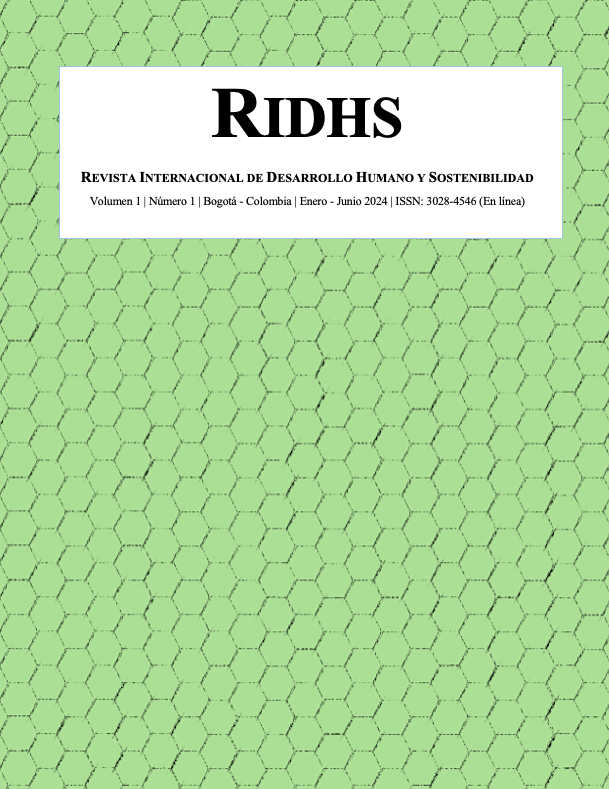Ética e Inteligencia Artificial
DOI:
https://doi.org/10.51660/ridhs11202Palabras clave:
inteligencia artificial, justicia, responsabilidad, transparencia, privacidad, autonomíaResumen
La Inteligencia Artificial (IA) ha emergido como una tecnología disruptiva con el potencial de transformar múltiples aspectos de la sociedad. Sin embargo, su desarrollo y aplicación plantean significativos desafíos éticos. Este artículo examina algunos principios éticos que podrían guiar la investigación, desarrollo e implementación de la IA. Estos principios incluyen la justicia, la responsabilidad, la transparencia, la privacidad y la autonomía. Se discute la importancia de cada principio en el contexto de la IA y se proponen recomendaciones para la integración de estos principios en la práctica tecnológica y la formulación de políticas. Estos principios no solo abordan los desafíos éticos actuales, sino que también proporcionan una guía para futuras innovaciones, asegurando que la IA se despliegue de manera que promueva el bienestar y respete la dignidad humana. A medida que la IA continúa evolucionando, la adhesión a estos principios será esencial para construir un futuro tecnológico ético.
Descargas
Referencias
Acquisti, A., Brandimarte, L., & Loewenstein, G. (2015). Privacy and human behavior in the age of information. Science, 347(6221), 509-514.
Aparicio-Gómez, Oscar-Yecid, Aparicio-Gómez, Carlos Alfonso., & von Feigenblatt, Otto Federico (2024). Tejiendo conexiones: la simbiosis transformadora entre aprendizaje e Inteligencia Artificial. Hachetetepé. Revista científica De Educación Y Comunicación, (28), 1-11. https://doi.org/10.25267/Hachetetepe.2024.i28.1103
Aparicio-Gómez, Oscar-Yecid, Aparicio-Gómez, William-Oswaldo (2024). Homo technicus: From techné to Artificial Intelligence. von Feigenblatt, Otto., Aparicio-Gómez, Oscar-Yecid (Eds.) (2024). Artificial Intelligence and Education: An Ongoing Dialogue (pp. 97-119). Barcelona: Octaedro. ISBN: 978-84-10282-04-9.
Brundage, M., Klein, J., & Wang, M. (2020). The malicious use of artificial intelligence: Forecasting, prevention, and mitigation. Artificial Intelligence, 328.
Calo, R. (2015). Against autonomy: Why self-driving cars, and other autonomous machines, are bad ideas. Columbia Law Review, 114(4), 993-1062.
Castelvecchi, V. (2016). Making AI explainable: Efforts to demystify machine learning and make it more transparent. Nature News, 538(7623), 435.
Doshi, V., Whittaker, C., & Tambe, P. (2020). Auditing AI: A framework for enabling the responsible use of artificial intelligence. Proceedings of the ACM on Human-Computer Interaction, 4(CSCW1), 1-18.
Floridi, L. (2013). The ethics of information. MIT Press.
Gebhardt, M., Wadler, S., & Berk, A. (2020). Bias and fairness in artificial intelligence. Proceedings of the AAAI Conference on Artificial Intelligence, 34(01), 745-752.
Johnson, D. D. (2016). Pervasive artificial intelligence: Should we fear or welcome it? In The ethics of artificial intelligence (pp. 246-263). Cambridge University Press.
Lipton, Z. C. (2018). The flip side of learning: A survey of algorithmic biases. Communications of the ACM, 61(7), 38-47.
Mittelstadt, B., Allo, P., Taddeo, M., Wachter, S., & Floridi, L. (2019). The ethics of artificial intelligence. Nature, 561(7723), 388-392.
O'Neill, S. (2017). Weapons of math destruction: How big data increases inequality and threatens democracy. Crown Publishing.
Pasquale, F., & Goertzel, B. (2020). The black box problem and artificial intelligence. Artificial Intelligence and Society, 56, 1-9.
Sandvig, E., & Wachter, S. (2019). Auditing algorithms: Beyond explanation. Science, 365(6453).
Solove, D. J. (2008). Understanding privacy. Harvard University Press.
Toft, M. B. (2018). Algorithmic fairness and the limits of human-centered design. Ethics and Information Technology, 20(2), 223-239.
Verma, S., & Doshi-Velez, F. (2019). Fairness and causality in predictive modeling. Proceedings of the AAAI Conference on Artificial Intelligence, 33(1), 1992-1999.
Zuboff, S. (2019). The age of surveillance capitalism: The fight for the future of our privacy. PublicAffairs.
Descargas
Publicado
Número
Sección
Licencia
Derechos de autor 2024 Revista Internacional de Desarrollo Humano y Sostenibilidad

Esta obra está bajo una licencia internacional Creative Commons Atribución-NoComercial-CompartirIgual 4.0.
Los artículos se publican bajo los términos de una licencia que permite el uso, distribución y reproducción en cualquier medio, siempre que el trabajo original se cite correctamente. Ed&TIC conserva los derechos patrimoniales de las obras publicadas y promueve activamente la reutilización de las mismas bajo los términos de la licencia mencionada anteriormente, lo que fomenta la difusión del conocimiento y la colaboración en la comunidad académica.


